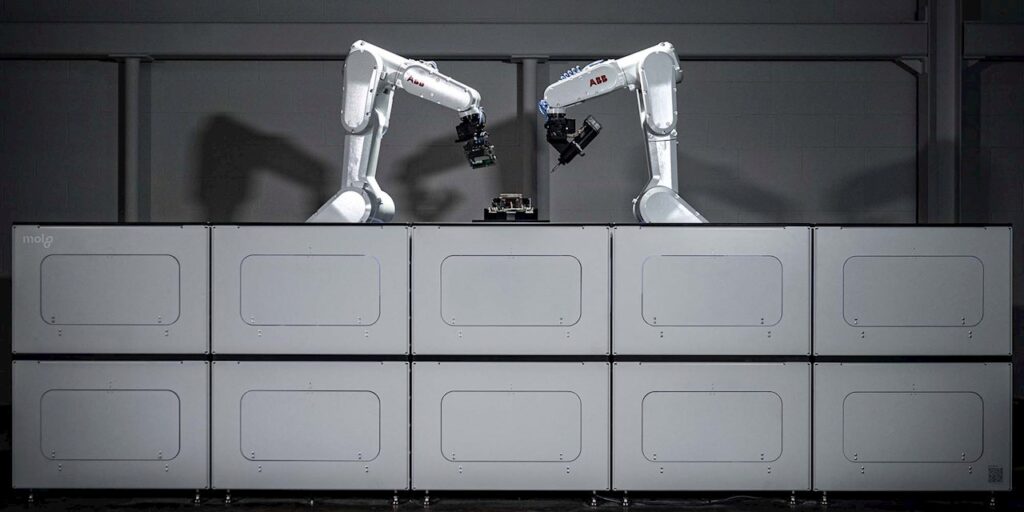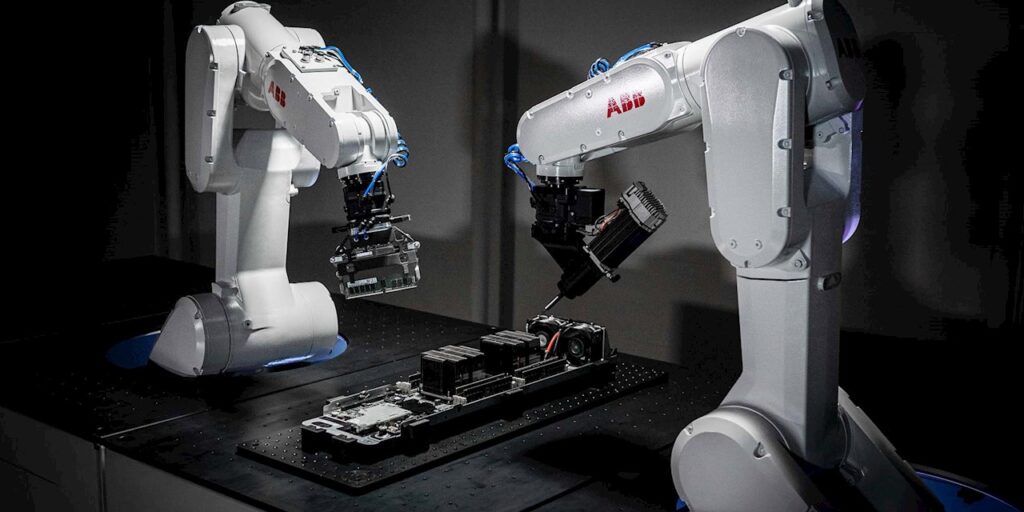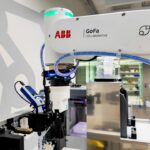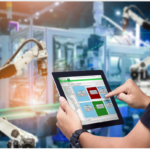ASIA ELECTRONICS INDUSTRYYOUR WINDOW TO SMART MANUFACTURING
New ABB Venture to Tackle e-Waste at Data Centers
ABB Robotics is collaborating with American start-up Molg to create robotic microfactories. This aims to recover and recycle data center operators’ disused electronic equipment, commonly known as e-waste. Mainly, with global e-waste projected to rise to 75 million tons by 2030[1], microfactories will play a vital role in reducing e-waste. Thus, it can help the data center sector operate more efficiently and sustainably.

“Through this collaboration, we continue to realize our vision of helping organizations operate more efficiently and sustainably,” said Craig McDonnell, Managing Director Business Line Industries, ABB Robotics. With Molg, we are creating new applications for industrial robotics in a growing segment with circularity and sustainability at the core. Our solution enables the upgrading and automated disassembly of data center equipment. Thus, it can help create greater circularity in the data center sector through responsible disposal, recycling, and reuse of components.”
Generally, advances in computing such as AI, machine learning and the cloud necessitate the need for data centers to upgrade and expand their facilities more frequently. Today, data centers are major contributors to the 2.6 million tons of e-waste generated worldwide each year.2
Presently, ABB Robotics continues to support innovation ecosystems through collaboration and venture capital investments. Specifically, ABB Robotics & Automation Ventures (ABB RA Ventures) participated with an investment in Molg’s seed round led by Closed Loop Partners’ Ventures Group, alongside Amazon’s Climate Pledge Fund, Overture, Elemental Impact and Techstars Ventures.

ABB’s Motion drive business declared Molg a winner in its ABB Accelerating Circularity Startup Challenge 2023. Particularly, Molg’s robotic microfactory can autonomously assemble and disassemble complex electronic products, including laptop PCs, servers, and industrial electronics.
Meanwhile, as an alternative to manual disassembly, or sending equipment to landfill or incineration, the microfactory solves many of the challenges associated with the disposal of electronic waste. With end users facing increasing regulations regarding the responsible handling of de-commissioned equipment[3], automated disassembly reduces the risks associated with handling toxic elements that can damage the environment and human health, and releases workers from handling arduous and potentially dangerous tasks.
Today, many components also contain rare earth elements (REEs). Thus, the ability to maximize their recovery through automation also provides an economic opportunity to reuse them in the production of new electronic equipment.
The microfactory solution is aimed at hyperscalers operating large networks of data centers and IT Asset Disposition (ITAD) companies.
“We are excited to have the support of ABB, a global leader in robotics and automation, as we continue pushing the boundaries of what is possible in circularity and automation,” said Rob Lawson-Shanks, CEO & Co-Founder of Molg. “With this investment from ABB, we can accelerate our work to create more sustainable, circular manufacturing processes for electronics that ensure valuable materials are kept in circulation and enhance supply chain resilience.”
The solution is part of Molg’s wider portfolio that includes design-for-circularity and component traceability software tools enabling manufacturers to create products that can be easily de-manufactured and recycled at the end of their life.
-14 October 2024-




